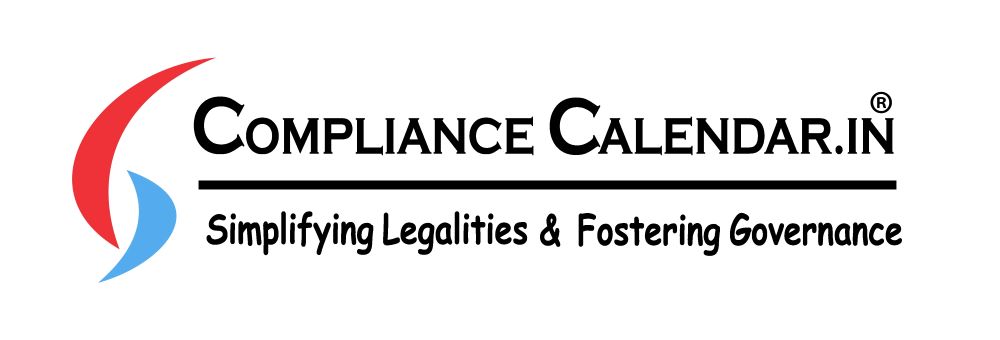Financial Checklist Before Closing a Private Limited Company in India

Strong 8k brings an ultra-HD IPTV experience to your living room and your pocket.
Closure of company is never an easy decision. Whether it's due to strategic restructuring, lack of business viability, or simply a voluntary decision, shutting down a Private Limited Company in India requires meticulous planning. The financial checklist plays a crucial role in ensuring a smooth and legally compliant closure. If ignored, pending financial matters can lead to legal complications, penalties, or even disqualification of directors.
This article outlines the essential financial checklist before winding up a private limited company in India, along with key legal provisions, practical steps, and FAQs to make the process easy to understand.
Legal Framework for Closure of Private Limited Companies
The closure of a private limited company is governed by the Companies Act, 2013, and the relevant rules under:
Section 248 – Strike Off by ROC (Registrar of Companies) on voluntary application
Section 271 to 274 – Compulsory winding up (in case of fraud, non-compliance, etc.)
Section 304 to 323 – Voluntary winding up by members (rarely used now)
Companies (Removal of Names of Companies from the Register of Companies) Rules, 2016
For most startups and inactive companies, closure is done via voluntary strike off under Section 248 of the Companies Act.
Why Is a Financial Checklist Necessary?
Before closing a company, it's essential to tie up all loose financial ends — unpaid taxes, employee dues, unfiled returns, and unsettled liabilities. This ensures:
No liability remains against the company or its directors
ROC approval is granted without objections
Future ventures of directors aren't impacted
No blacklisting of the company or DIN (Director Identification Number)
Financial Checklist Before Closure
- Clear Outstanding Debts and Liabilities
Before filing for closure, ensure the company has:
No outstanding loans from banks or NBFCs
No unpaid vendor or customer dues
No statutory liabilities (GST, TDS, Income Tax, PF, ESIC)
If there are any debts, you cannot opt for voluntary closure under Section 248. In such cases, formal liquidation is necessary.
- Close Bank Accounts
All current accounts in the name of the company must be closed. Obtain a bank closure confirmation letter and ensure no pending cheques or ECS transactions are active.
- Prepare Latest Financial Statements
The company must prepare:
Latest audited financial statement
Statement of assets and liabilities showing nil balances
Nil profit and loss account (if no operations in the last year)
These must be certified by a Chartered Accountant and attached with the closure application.
- File All Pending ROC Returns
Before applying for strike off, ensure:
All Annual Returns (Form MGT-7) and Financial Statements (Form AOC-4) are filed
DIR-3 KYC for all directors is updated
Any past event-based filings (like share allotment, resignation) are completed
Non-compliance with ROC filings may result in rejection of the strike-off application or penalties.
- Pay All Taxes and File Returns
Clear and file:
GST Returns (GSTR-1, GSTR-3B, and annual returns), and surrender the GST registration
Income Tax Returns (ITR-6) for the last financial year
TDS Returns and obtain TDS certificates (Form 16/16A) if required
Get a no dues certificate or tax clearance, especially if any litigation or notice was served.
- Close Statutory Registrations
Cancel the following if they exist:
GST Registration
Shops & Establishment License
ESIC and PF Registration
Professional Tax Registration
Submit cancellation forms to relevant departments and attach acknowledgments.
- Check for Unclaimed Assets (like IEPF)
If your company has unclaimed dividend recovery or shares transferred to IEPF, ensure you comply with IEPF filing obligations under Section 124 and 125 of Companies Act, 2013. Unsettled IEPF liabilities can delay company closure.
- Board Resolution for Closure
The Board of Directors must pass a resolution for strike off, and if shareholders’ consent is needed, conduct a General Meeting. Attach certified resolutions with the strike-off form (Form STK-2).
- Prepare Indemnity Bond and Affidavit
Directors must prepare and sign:
Indemnity Bond (Form STK-3)
Affidavit (Form STK-4) stating no liabilities exist
These must be notarized and attached with the closure form.
- File Form STK-2 with MCA
The final step is to file Form STK-2 with:
Paid fees (INR 10,000 as on date)
Affidavits, Indemnity Bond
CA-certified financials
Board and shareholder resolutions
Once filed, the ROC may publish a notice in the Official Gazette, and if no objection is received within 30 days, the company name is struck off.
FAQs on Financial Closure of Private Limited Company
- What if the company has assets or liabilities on record?
A company with active assets or liabilities cannot file for voluntary strike off. It must first liquidate assets, clear liabilities, and show nil balances in audited financials.
- Is audit mandatory even if there are no transactions?
Yes. Even a dormant company must file audited financials to support the strike-off application.
- Can a company with income tax dues apply for strike off?
No. All tax dues must be cleared before filing for strike off. Obtain a no-dues certificate if previously served with a demand notice.
- What happens to cash or assets left in the company post-closure?
Once the company is closed, any remaining assets are deemed vested with the government, unless distributed legally before closure.
- Can directors be disqualified for not closing a company properly?
Yes. Failure to file annual returns or closure documents can result in disqualification under Section 164 of the Companies Act.
- Is professional help necessary to close a company?
While not legally mandatory, hiring a CA or CS is highly recommended. Errors in closure forms or missing filings often lead to rejection by ROC.
Conclusion
Closure a private limited company requires more than just filing a form. It’s about tying up all financial ends and exiting the business world responsibly. A detailed financial checklist ensures legal compliance, protects directors from future liabilities, and facilitates smooth closure. Think of it as the last step in your business journey — and one that should be done right.
Note: IndiBlogHub features both user-submitted and editorial content. We do not verify third-party contributions. Read our Disclaimer and Privacy Policyfor details.







